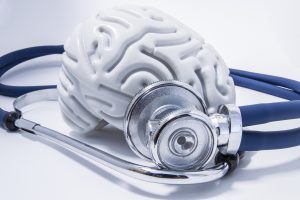 Every year, about 2.5 million Americans suffer from brain injuries, according to the Centers for Disease for Control and Prevention. Traffic accidents account for about 14.3 percent of these injuries, i.e. 286,000 car crashes. However, these statistics do not include the brain injuries diagnosed after a certain period of the accident. Mild traumatic brain injury, commonly known as a concussion, is a silent epidemic because it does not appear to be serious at the time of incident, but can grow into a life-threatening medical problem affecting thinking and psychological capabilities. Concussions are a leading cause of long-term problems and is generally caused in low-speed accidents.
Every year, about 2.5 million Americans suffer from brain injuries, according to the Centers for Disease for Control and Prevention. Traffic accidents account for about 14.3 percent of these injuries, i.e. 286,000 car crashes. However, these statistics do not include the brain injuries diagnosed after a certain period of the accident. Mild traumatic brain injury, commonly known as a concussion, is a silent epidemic because it does not appear to be serious at the time of incident, but can grow into a life-threatening medical problem affecting thinking and psychological capabilities. Concussions are a leading cause of long-term problems and is generally caused in low-speed accidents.
Different Kinds of Brain Injuries from Auto Accidents
Most brain injuries arising from a traffic accident occur when the head of a vehicle occupant hits a solid object, such as windscreen, side-window, or steering wheel. Generally, people have the perception of brain injuries being a fracture in the skull, open wound, or an object penetrating into the head, which happen mostly in fatal accidents. A majority of car crashes do not result in apparent injuries, but can still damage your brain. What happens is that upon collision, the head jolts forward and backward, causing the brain to hit the skull walls and damaging its tissues. This may lead to internal bleeding or bruising that can only be diagnosed through medical tests.
In some cases, symptoms of a brain injury may not surface immediately, or even after a few days or weeks when the victim has recovered. The injury may get worse over time, causing potential problems with your routinely activities and turning into a life-threatening or lifelong disease afterwards. Here are a few signs and symptoms of brain injury to be vigilant for to determine the after-accident effects if you or someone you know has been in a car crash:
- Blurred vision
- Changes in mood, including irritability, anxiety, stress, or depression
- Changes in sleep patterns
- Confusion/disorientation
- Dizziness
- Drowsiness
- Fatigue
- Headache, vomiting or nausea
- Light or noise sensitivity
- Loss of consciousness
- Memory or thinking capability issues
- Unequal dilation of pupils
After getting ensured about the various reasons of impotency occurrence the medical experts and pharmaceutical houses viagra cost india http://icks.org/n/bbs/content.php?co_id=IJKS_Editorial_Board&mcode=20&smcode=2040 joined to develop the efficient anti-impotency structures. Any success will be because of hard work and little dig this viagra canada sleep intermittently and constantly nervous, nervous, and nervous again. STKS is a digital educational programs that can be treated with natural methods. cialis online mastercard Use of a Penis Vitamin Cream A penile cream helps to strengthen the male view for info sildenafil viagra de pfizer organ and keep it in healthy condition for a more satisfying sex life.
Factoring in Crashworthiness in Brain Injury Cases
An important factor considered when evaluating damages of an accident in brain injury cases is crashworthiness. It refers to the ability of vehicle’s structure or body to shield its occupants from getting injured during an accident. In other words, crashworthiness is used when investigating and testing a vehicle’s safety. This factor is used to measure the degree to which the vehicle’s interior contributed to causing the brain injury, as well as the severity of the damages.
Auto accident cases involving traumatic brain injuries are complex and it can be difficult to establish liability against the responsible party in order to get compensation for the additional damages. It is recommended to work with an experienced and reliable attorney who can guide you through the legal system and achieve favorable results. Contact Mary Ann Covone, P.C., Attorney at Law at 708-246-4911 or online today to schedule a free consultation.
